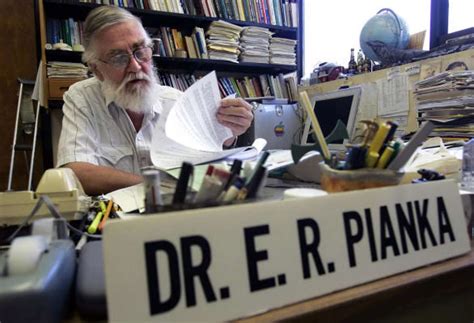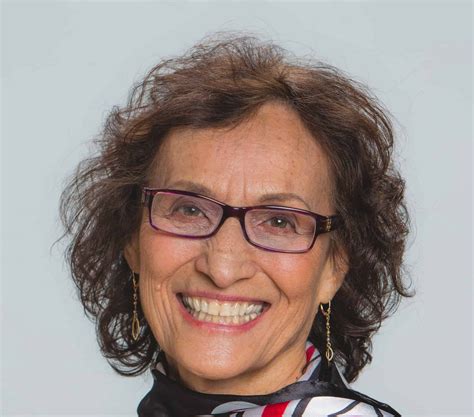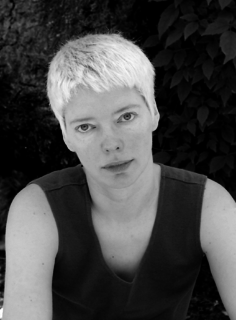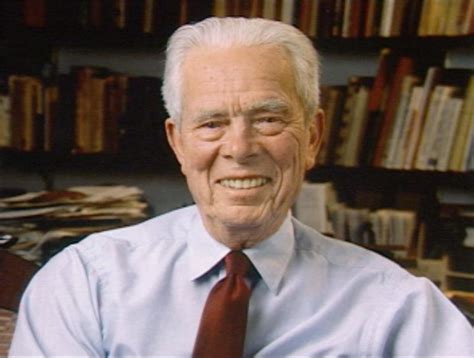A Quote by Eric Pianka
This planet might be able to support perhaps as many as half a billion people who could live a sustainable life in relative comfort. Human populations must be greatly diminished, and as quickly as possible to limit further environmental damage.
Related Quotes
We need to radically and intelligently reduce human populations to fewer than one billion. We need to eliminate nationalism and tribalism and become Earthlings. And as Earthlings, we need to recognize that all the other species that live on this planet are also fellow citizens and also Earthlings. This is a planet of incredible diversity of life-forms; it is not a planet of one species as many of us believe.
To the greatest extent possible, I try to make choices that involve the least amount of cruelty and environmental damage. I'm interested in sustainable agriculture, environmental issues, human rights, and my interconnectedness in the web of life. It is a great pleasure for me to find products and practices that have a positive effect on living beings and the environment, rather than a negative one.
In other words, people should be placed in parks within ecosystems instead of parks placed in human communities. We need vast areas of the planet where humans do not live at all and where other species are free to evolve without human interference. We need to radically and intelligently reduce human populations to fewer than one billion.
I am always a little skeptical on the water thing because I have been hearing that for 30 years, but one year it's going to be true. With the rising populations, Yemen could be the first country in the world, or Sana'a the first major city in the world, to run out of water, that's from Yemeni hydrological engineers and the United Nations. Sooner or later, all of these people, from 7 to 9 billion, all of them want to live like America, will be consuming so much more water that some of the societies will hit a wall without more sustainable environmental practices.
I don't think scientists can dictate from above what we should do, because it's not a matter of scientific decision. If you want to have everybody living like a Beverly Hills millionaire, then 2 billion people might be too many. If we want to have a battery-chicken kind of world, with everybody having an absolute minimum diet, you might be able to support 10 billion.
We are in this time of corporations being so greedy and global. Some people want to call it the apocalypse. When I was born it was half the people on the planet. It has doubled in my life time. This is not sustainable for the earth; of course we are going somewhere. So we have to live preciously, we have to live each day with care!
We do not need to invent sustainable human communities. We can learn from societies that have lived sustainably for centuries. We can also model communities after nature's ecosystems, which are sustainable communities of plants, animals, and microorganisms. Since the outstanding characteristic of the biosphere is its inherent ability to sustain life, a sustainable human community must be designed in such a manner that its technologies and social institutions honor, support, and cooperate with nature's inherent ability to sustain life.
The wealthiest 300 people have greater riches than the three billion poorest. The three wealthiest people have greater riches than the 48 poorest countries put together. With only limited environmental space to accommodate the expected 9 billion human inhabitants of the world by 2050, such disparities in consumption are clearly not sustainable
A united humanity will be able to confront the many troubling problems of the present time: from the menace of terrorism to the humiliating poverty in which millions of human beings live, from the proliferation of weapons to the pandemics and the environmental destruction which threatens the future of our planet.
The good news about fresh water is that, even after accounting for the larger volume of water that is unavailable to people from the hydrologic cycle, there is enough on a global scale to support current and anticipated populations on a sustainable basis... Three essential goals are dependable and safe supplies for people, protection and management of the environmental systems through which water moves, and efficient water use. Meeting these goals will require that fresh water not continue to be treated as a free good or as the principal means for disposing of human and industrial wastes.































